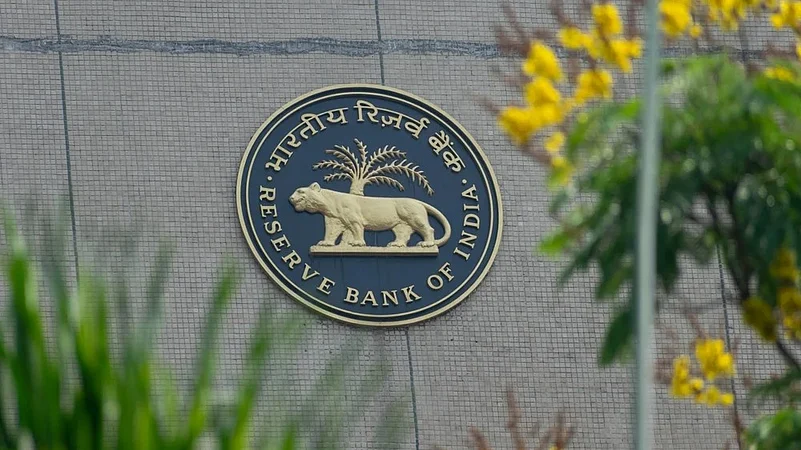The cooperative banking sector in Gujarat has long been regarded as a cornerstone of economic growth and financial inclusivity. However, recent reports reveal that five cooperative banks are facing penalties from the RBI, casting a shadow over the stability of these institutions.
Importance of Cooperative Banks in Gujarat
Cooperative banks in Gujarat have been instrumental in catering to the banking needs of the local population, especially in rural areas. Their role in providing financial services and credit facilities has contributed significantly to the state’s economic development.
Brief on RBI Penalties
The RBI, as the regulatory authority overseeing the functioning of banks in India, has levied penalties on these cooperative banks for alleged violations. This raises questions about the adherence to regulatory guidelines and the overall health of the banking system in Gujarat.
Cooperative Banks in Gujarat
Background Information
To understand the current situation, it’s crucial to delve into the history and functioning of cooperative banks in Gujarat. These institutions, rooted in the cooperative movement, have played a crucial role in financial inclusion.
Role in the State’s Economy
Gujarat’s cooperative banks have been the backbone of the local economy, providing financial support to various sectors, including agriculture, small businesses, and individual account holders. The impact of any disruptions in their operations is far-reaching.
Challenges Faced by Cooperative Banks
Despite their vital role, cooperative banks face unique challenges, including governance issues, limited resources, and the need for modernization. These challenges may have contributed to the recent penalties imposed by the RBI.
RBI Penalties
Reasons for Penalties
The RBI, in its role as a regulatory authority, imposes penalties for various reasons, ranging from non-compliance with guidelines to governance issues. Understanding the specific reasons behind the penalties is crucial for addressing systemic issues.
Impact on the Banking Sector
The penalties imposed on these cooperative banks have wider implications for the entire banking sector in Gujarat. It raises questions about the effectiveness of regulatory oversight and the need for proactive measures to ensure stability.
Implications for Account Holders
Account holders in these cooperative banks may be understandably concerned about the safety of their deposits and the overall reliability of the banking system. Clear communication and remedial actions are essential to address these concerns.
Regulatory Framework
RBI’s Role in Regulating Banks
The RBI plays a pivotal role in overseeing the functioning of banks in India. Understanding its regulatory framework and guidelines is essential for comprehending the basis on which penalties are imposed.
Guidelines for Cooperative Banks
Cooperative banks operate under specific guidelines set by the RBI. Compliance with these guidelines is crucial for maintaining financial stability and ensuring the trust of depositors.
Compliance Issues Leading to Penalties
An analysis of the compliance issues that led to penalties is essential for identifying systemic weaknesses. Addressing these issues is crucial for preventing similar problems in the future.
Case Studies
Details of Five Cooperative Banks
An in-depth examination of the five cooperative banks facing penalties provides insights into their size, customer base, and the nature of services they offer.
Nature of Penalties Imposed
Understanding the nature of penalties – whether they relate to governance, financial mismanagement, or other issues – helps in gauging the severity of the situation.
Response from the Banks
How these cooperative banks respond to the penalties and the measures they take to rectify the issues will influence their credibility and the future of cooperative banking in Gujarat.
Rebuilding Trust
Steps Taken by Cooperative Banks
Cooperative banks need to take immediate and transparent steps to rebuild trust. This includes rectifying the issues that led to penalties and communicating effectively with stakeholders.
Reassuring Account Holders
Providing clear and reassuring communication to account holders about the corrective measures being implemented is essential for maintaining trust and preventing a mass withdrawal of funds.
Long-term Strategies for Improvement
Beyond immediate fixes, cooperative banks must formulate and implement long-term strategies to address systemic issues, ensuring the recurrence of such problems is minimized.
Importance of Transparent Communication
Addressing Public Concerns
Transparent communication is key to addressing the concerns of the public, including depositors, shareholders, and the wider community. Openness about the challenges faced and the steps being taken is crucial.
The Role of Effective Communication
Effective communication not only addresses current concerns but also establishes a foundation for rebuilding trust. It involves honesty, clarity, and a commitment to rectifying mistakes.
Rebuilding Trust Through Transparency
Transparency in operations, decision-making processes, and future plans is crucial for rebuilding trust. It ensures that stakeholders are well-informed and confident in the corrective actions being taken.
Learning from Mistakes
The Need for Self-assessment
Cooperative banks must engage in a thorough self-assessment to identify the root causes of the issues leading to penalties. This involves introspection and a commitment to addressing internal weaknesses.
Implementing Corrective Measures
Once the issues are identified, immediate and effective corrective measures must be implemented. This may involve changes in governance, operational processes, and compliance protocols.
Collaborative Efforts for Improvement
The cooperation of stakeholders, including regulatory bodies, government agencies, and the banks themselves, is essential for implementing and sustaining improvements in the cooperative banking sector.
The Future of Cooperative Banking in Gujarat
Potential Reforms
The challenges faced by these cooperative banks should prompt a broader discussion on potential reforms in the regulatory framework and governance structures of cooperative banking in Gujarat.
Role of Technology in Banking
Leveraging technology for modernization and efficient operations is crucial for the future of cooperative banking. Embracing digitalization can enhance transparency and reduce operational risks.
Collaborative Efforts for a Stronger Banking Sector
The future of cooperative banking lies in collaborative efforts. Stakeholders, including regulatory bodies, banks, and the public, need to work together to build a stronger, more resilient banking sector.














